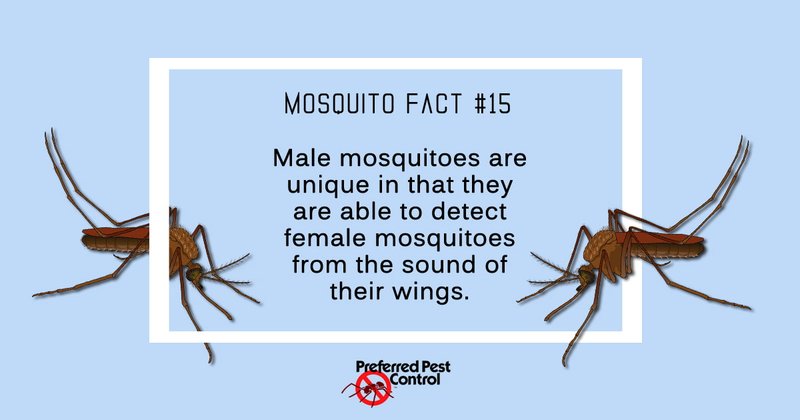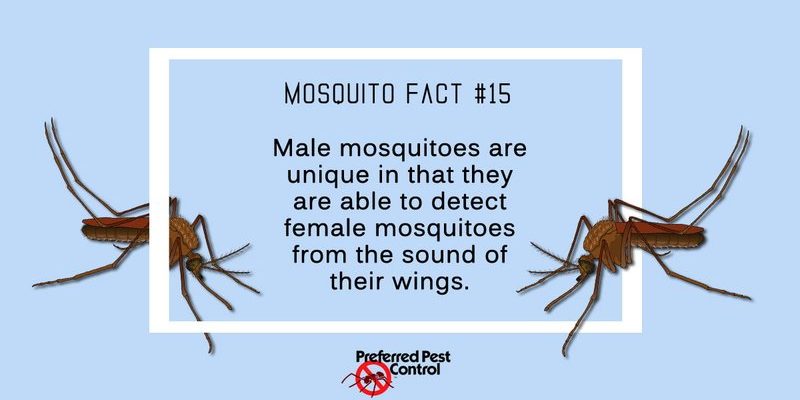
Let’s dive into some of the most fascinating facts about mosquitoes, and you might just come away with a newfound appreciation for these little critters. From their incredible survival skills to their role in nature, the story of mosquitoes is a wild one. Grab a seat, and let’s explore what makes these insects so intriguing.
1. Mosquitoes Are Not All About Blood
You might be surprised to learn that not all mosquitoes are out for a blood meal. In fact, most male mosquitoes feed on nectar and other plant juices. They don’t bite humans at all! It’s the female mosquitoes, on the hunt for a protein boost for their eggs, that are known for their annoying bites. Think of it like this: while the guys are hanging out at the juice bar, the ladies are in search of a hearty meal for their future offspring.
This means that while you might be swatting at a mosquito that’s aiming for your blood, it’s really just doing what it needs to do to ensure its survival and reproduction. So, the next time one buzzes past your ear, remember that it’s likely a female on a mission.
2. Mosquitoes Have Been Around for Millions of Years
Mosquitoes are ancient creatures, dating back over 100 million years! That puts them in the same time frame as the dinosaurs. Imagine those tiny wings fluttering around as giant reptiles roamed the Earth. Fossils show that mosquitoes thrived in diverse environments, adapting to changes over millennia.
Their long existence is a testament to their resilience. They’ve survived ice ages, volcanic eruptions, and enormous shifts in climate. This adaptability helps explain why you still encounter mosquitoes today, despite their age. They’re like the cockroaches of the insect world—hard to get rid of!
3. Only Female Mosquitoes Bite
We’ve touched on this a bit, but it’s worth diving deeper. Only female mosquitoes bite because they need the protein found in blood for their eggs to develop properly. When a female mosquito bites, she injects saliva containing anticoagulants to prevent your blood from clotting. That’s why you often end up with itchy welts—your body reacts to the foreign proteins in the saliva.
The male, on the other hand, is busy sipping nectar, not causing any harm. Picture it like a dinner party: the females are the guests looking for a hearty meal, while the males happily snack on appetizers. Knowing this might make you feel a little less annoyed at the buzzing around you—but just a little!
4. Mosquitoes Can Sense You from Far Away
Have you ever noticed that mosquitoes seem to find you no matter where you are? Well, they have some incredible tools at their disposal. Mosquitoes can detect carbon dioxide from up to 100 feet away. When you exhale, they catch a whiff of it—kind of like you sniffing out a delicious cake baking nearby.
In addition to carbon dioxide, they’re also drawn to heat and body odor. So, if you’ve ever wondered why mosquitoes seem to prefer some people over others, it’s likely because of individual body chemistry. That’s right, your unique scent and warmth act like a mosquito magnet!
5. They Are Important Pollinators
While you might not typically associate mosquitoes with pollination, they actually play a role in the ecosystem as pollinators. Just like bees, many species of mosquitoes feed on nectar from flowers. They help transfer pollen as they move from plant to plant, contributing to plant reproduction.
So, while they may be notorious for biting, they’re also part of a larger picture in maintaining healthy ecosystems. Without them, some plants might struggle to reproduce. Think of it as a yin and yang situation, balancing the annoyance of a bite with the benefits of pollination.
6. Mosquitoes Are Responsible for Disease Transmission
Sadly, mosquitoes are infamous for being vectors for various diseases. They transmit viruses and parasites that can lead to serious health issues in humans. Diseases like malaria, dengue fever, Zika, and West Nile virus are just a few examples. In fact, they are considered one of the deadliest animals on Earth due to their role in disease transmission.
This aspect of mosquitoes is crucial to understand because it informs public health strategies worldwide. While mosquitoes are fascinating, their ability to carry diseases means we need to be cautious. Protecting yourself with repellents and avoiding standing water can be effective ways to minimize your risk.
7. The Lifespan of a Mosquito
You might think that once mosquitoes land a bite, they’re done for, but that’s not the case! Mosquitoes have varying lifespans, depending on their species and environmental conditions. On average, a female mosquito can live for about 2-4 weeks, while males typically live only a week or so.
Factors like temperature, humidity, and availability of food can influence their lifespan significantly. In ideal conditions, some mosquitoes can even survive up to several months! This adaptability allows them to thrive in different environments, from hot and humid tropical regions to cooler climates.
8. Mosquitoes Are Fast Flyers
You might think that mosquitoes are slow creatures, darting around here and there. But they are surprisingly fast! Mosquitoes can fly at speeds of up to 1-1.5 miles per hour. Though that doesn’t sound too fast compared to a car, consider the scale: they’re tiny insects flapping their wings rapidly to maintain that speed.
That quickness lets them evade swats and makes them difficult to catch. It’s like trying to catch a small bird in your garden—these little guys are agile! Plus, with their ability to sense movement and changes in air currents, it becomes a real challenge to swat them away.
9. They Can “Hibernate”
This might sound like something out of a sci-fi movie, but mosquitoes can enter a state of dormancy during colder months. Female mosquitoes often seek shelter in protected areas, where they can hibernate until temperatures rise again. This process allows them to survive through tough conditions.
In some cases, once the weather warms up, they emerge and go about their lives, laying eggs. So, when spring rolls around, and you start getting bitten again, it’s likely those little hibernators are back in action. It’s a pretty neat survival tactic, ensuring their species continues from year to year.
10. Mosquitoes Are a Source of Scientific Research
With all the health risks associated with mosquitoes, it’s easy to view them solely as pests. However, scientists study them closely to learn more about disease prevention and management. Research on mosquitoes helps in developing vaccines and understanding how diseases spread.
By studying their behaviors, habitats, and interactions with other species, scientists aim to find innovative solutions to reduce disease transmission. So, while mosquitoes may seem annoying, they’re contributing to important research that could someday save lives.
In conclusion, mosquitoes are way more fascinating than we often give them credit for. From their ancient lineage to their surprising roles in ecosystems, they’re complex creatures that deserve a closer look. Next time you hear that familiar buzz, remember there’s much more to these little insects than just a bite!

